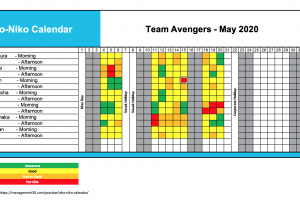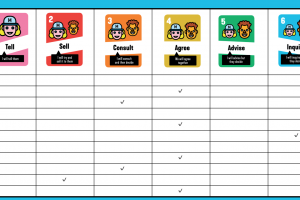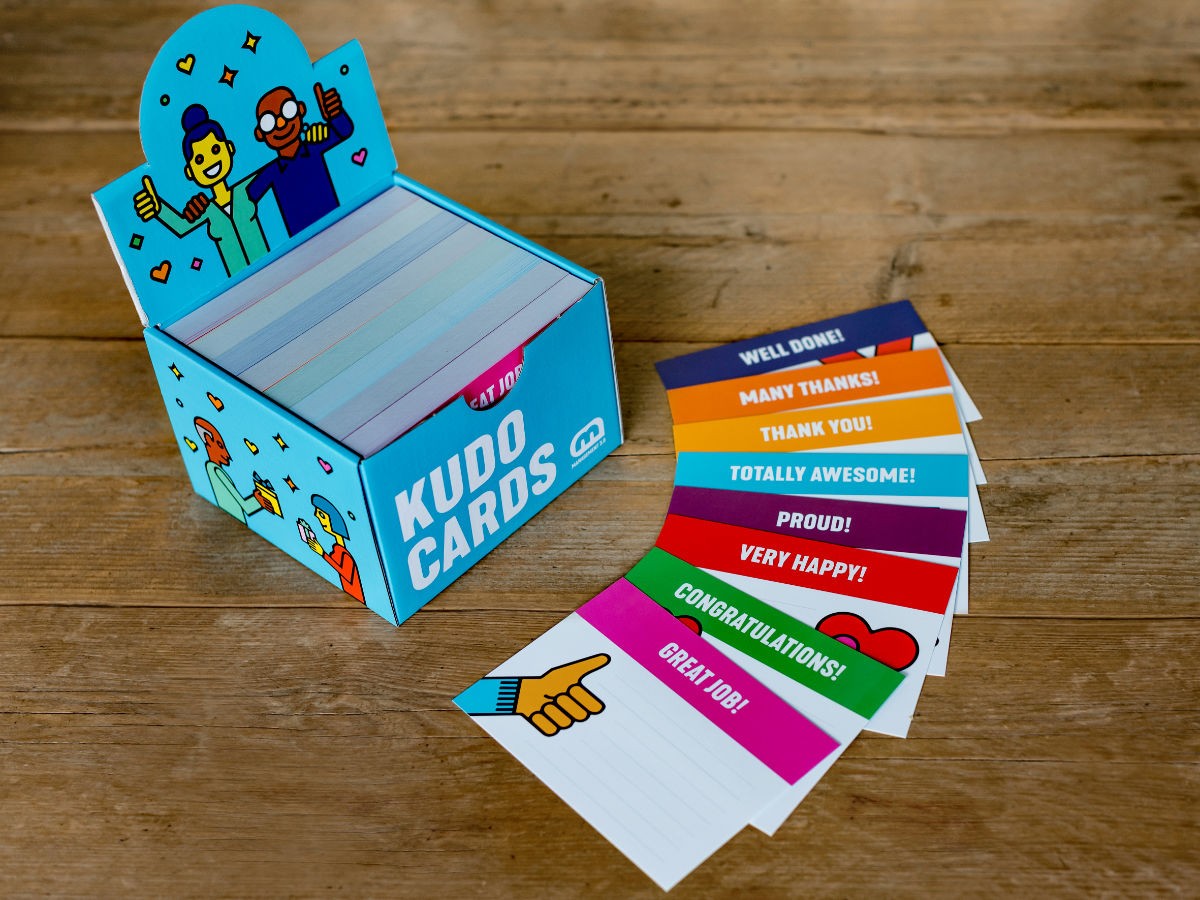
Kudos to you, Grumpy old Product Manager!
Have you ever worked with a grumpy old product manager from a foreign land? Think about a team of software developers and a scrum master working with such a person, while living in another country, working from home remotely. I’m sure you all have faced this situation in the past. No matter how much you do, the product manager is never happy! Well, this is the exact situation that a team in my current organization where I am playing the role of Agile Coach is facing at the moment.
Today, in highly uncertain times due to global pandemic respect and gratitude are key aspects that keep life and individuals going. We see a lot of kindness and unwavering bravery on the part of medical staff who are in the front line of fighting Coronavirus. We also see the streams of honor and praise that pour their way. I’m sure you too have at least said a silent prayer for them. So, in today’s world of technology where everyone is working from home, the smallest acts of appreciation go a long way in making someone’s day.
Life is not always about receiving feedback and gratitude. It also involves providing a positive remark even for someone’s smallest deed. It is easy to thank someone in return whenever you receive something from someone. But giving without expecting something in return, or giving knowing very well you may not get something back is what separates great from the good.
Individuals may behave in a certain way due to several reasons. It may be because of the context, what they are going through, or what is happening around them. It may even be because of their personality and nature. We do not need to know what others go through to say a few kind words about them. This is exactly what I’m exploring here.
What is the Kudos Box?
Kudos Box is a technique from Management 3.0 which focuses on feedback and rewards at workplaces. Rather than rewarding based on extrinsic motivational factors such as salary increments, bonuses, and other monetary and non-monetary benefits this technique focuses on incentivizing employees by stimulating their intrinsic motivational factors. The intension is to make team members feel happier by praising them and acknowledging the good work that they have done through a simple compliment.
Management 3.0 provides a variety of colorful Kudos cards which can be used by the team members to write down their compliment to someone else. The compliment is written anonymously and put into a Kudos Box placed in a common location. The team will gather around on a designated time and place and read out the compliments given to each other.
The primary types of Kudos cards include thank you, you are awesome, good job, you are a start, well done type of headings. There are over 50 such cards in a standard kudos card pack but we have the freedom of creating our own packs the way we want. Individuals are encouraged to pick a card, write down how they feel about the work done by someone and put it into words of appreciation. Keep it short and keep it concise. After all, you don’t want the person to be reading a really lengthy thank you note. Hey! make sure to write the recipient’s name as well. We don’t want your precious note to go to waste.
The Kudox Box provides the ideal platform to reward others aligning with the rules for rewarding as specified by Jurgen Appelo. Six Rules when rewarding or complimenting others are,
Don’t promise rewards in advance
Keep it hidden and keep it as suspense. If individuals get to know what they are about to receive the value of it might be lost.
Keep anticipated rewards small
Give incremental rewards and don’t give a really large reward all at once. People like to receive small but valuable things.
Reward continuously
Don’t have long lull periods without any rewards. People are stimulated by receiving things consistently. After all, we do like to receive things from our colleges, don’t we? 🙂
Reward publicly, not privately
Anonymity is key. People don’t really need to know who gave the reward. This increases suspense and ultimately the satisfaction of receiving a reward.
Reward behavior, not the outcome
Deeds matter the most. We want to promote a culture of openness and innovation and want people to try out new things. If we reward outcomes it might only be the positive ones that get rewarded. So, only reward the thought and the action.
Reward peers, not subordinates
People like to be appreciated by teammates. We want to build happiness among team members and so when rewarding someone, please do sound as if you are rewarding someone at your own level, even if you are a manager.
How did I use the Kudos Box?
As I stated during my introduction, the Scrum Team in Sri Lanka was having a hard time working with a product manager from the USA. They had tried different strategies to engage and collaborate with the stakeholder but to no avail. After a coaching session, the team agreed to try out a different approach. The approach was to see whether we can use a negative affirmation technique. My suggestion was to use the Kudos Box in the following manner.
- Use www.Kudobox.co to send Kudos to each other.
- Do not limit sending good thoughts to only the Product Manager but if you feel like complimenting someone else in the team please do go ahead and send a compliment.
- Select a card with an appropriate heading from the Kudos card pack.
- Start with a pleasant greeting to the recipient followed by a clear, concise, and short statement of appreciation.
- Be specific about any good deeds, tasks, or achievements you want to focus on. It helps the recipient to relate more plus clearly indicates what they are being appreciated for.
- Each team member receives the Kudos to their office email box. Save it into a folder on your laptop until the next sprint review and retrospective session.
- Each team member must read out the kudos cards received during the review session. This creates a happy and relaxed environment for the team.
- Observe the body language and facial expressions of team members when they are reading the cards received in front of the team.
- Evaluate the level of happiness among team members during the sprint review and retrospective session.
- If there are individuals who had not received any cards of appreciation make sure to offer them a word of encouragement. This also gives an indication to others to focus a bit more on acknowledging everyone in the team.
Within one-week team members sent quite a number of Kudos to the Product Manager appreciating his hard work detailing out the requirements, specifying the business value, staying up till late to explain requirements, and on various other topics. Interestingly, the product owner too had sent Kudos cards to the team members (only the fact and numbers were indicated to maintain anonymity). The entire team had a healthy discussion during the review and retrospective session.
A simple technique created a great difference to a team. Frictions were starting to reduce and the product owner started to develop a different impression towards the team. There was more communication and collaboration and more importantly, no more aggressive conversations between one another.
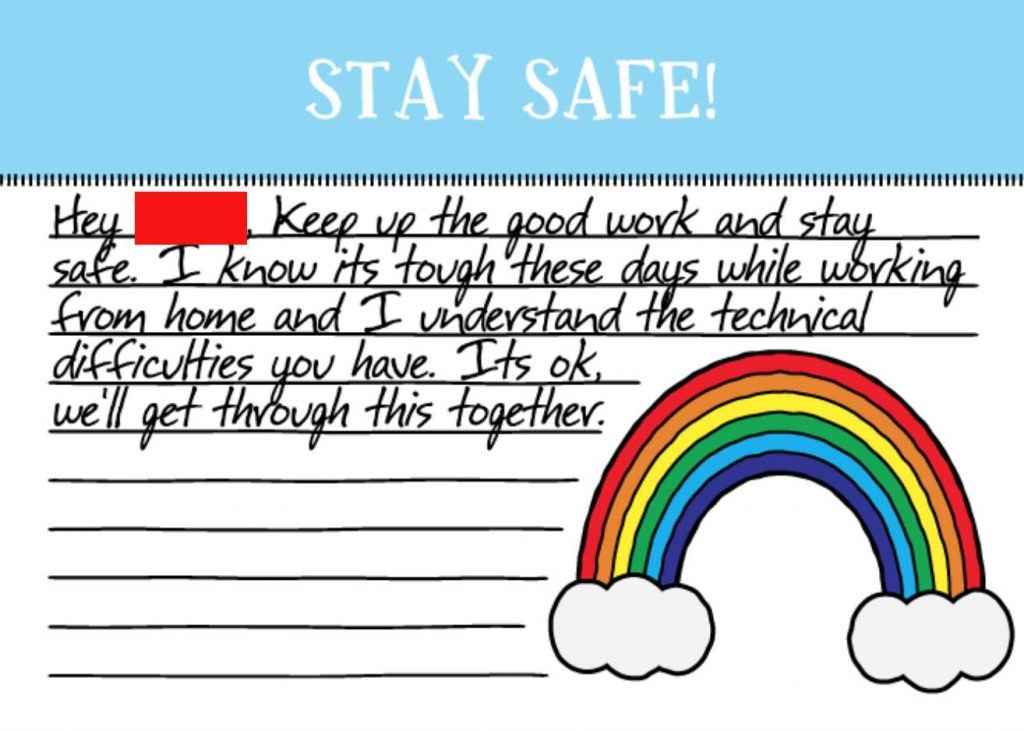
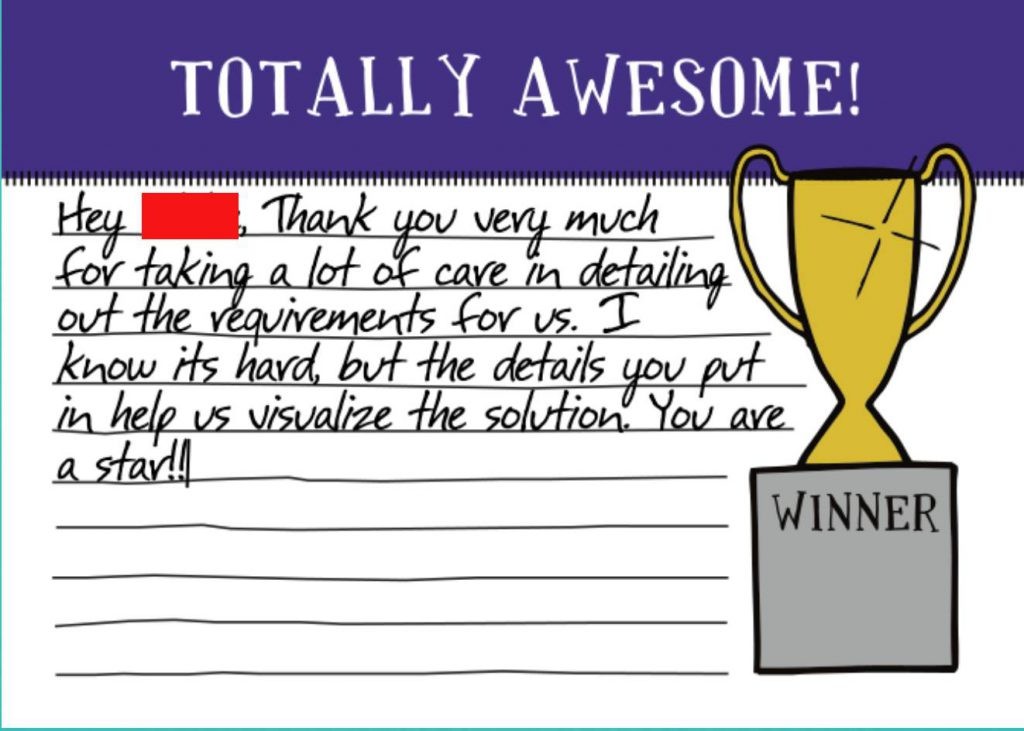
Learning & Actions
Key learnings and action items from the exercise are as listed below.
- It is a subtle way to ease friction between team members.
- Anonymity in providing compliments enhances the willingness of participation.
- It is an awesome method to provide different forms of appreciation.
- It creates higher levels of team morale, comradery, and openness among team members
- It highlights the fact that motivation does not need to be just extrinsic factors. Intrinsic motivators play a major part, even more during the time of adversity.
- Software developers tend to focus more on technical tasks and the implementation of features when sending kudos. It was the same with QA engineers as they focused more on big free quality software.
- The team realized that you don’t need to wait until a manager, customer, or someone with authority praises them.
- In terms of next actions,
- The team decided to set up a physical Kudos box when they get back to the office
- The team decided to continue to use the digital Kudos box
- The team decided to explore the possibility of adding their own categories of cards
- A conscious effort to be made not just to focus on work progress but on soft skills and other human aspects as well.
When did you last write a thank you note to your teammates or subordinates? Have you used the Kudos box to enhance the happiness of your remote teams? I would really love to hear about your experiences!


